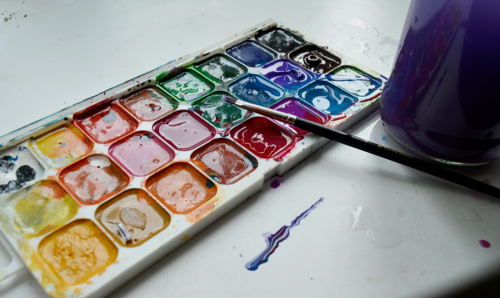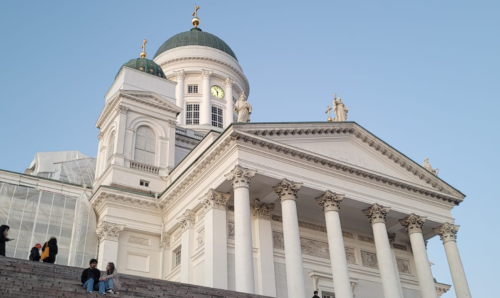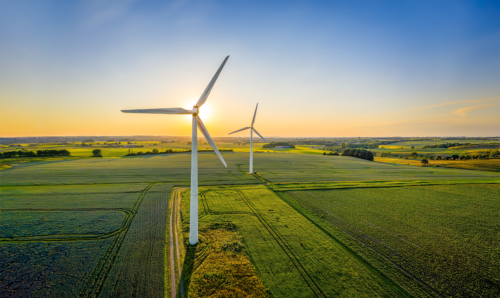LGBT+ History Month: Inclusivity in science and engineering
Social responsibility UOM life 17th February 2022
February is LGBT+ History Month, and here in the Faculty of Science and Engineering (FSE) we’re always keen to encourage – and celebrate – inclusivity.
The month’s overall aim is to promote equality and diversity, doing so by increasing the visibility of lesbian, gay, bisexual and transgender (LGBT+) people, their history, lives and experiences – including in the curriculum and wider culture of education.
To mark the event, we wanted to share the thoughts and experiences of just some of the LGBT+ community here in FSE…
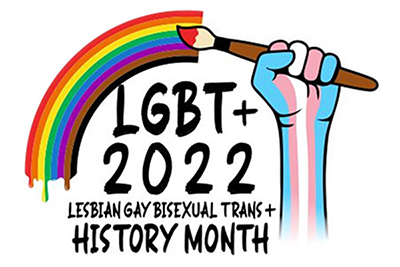
Action towards equality
50 years ago, in 1972, the very first Pride March was held in the UK. Today, the fight for equality continues.
One of the key goals of LGBT+ History Month is to raise awareness and to advance education on matters affecting the LGBT+ community; another is to make educational and other institutions safe spaces for all. It seeks to promote the welfare of LGBT+ people by ensuring the education system recognises and enables them to achieve their full potential.
The University of Manchester has marked LGBT+ History Month every year since 2010. This year’s celebrations have included a pronouns day – to encourage as many people as possible to update their pronouns on email signatures, Teams and Zoom – and showings of LGBT+ film shorts, with discussions.
A session has also explored the struggles and triumphs of LGBT+ people in sport, while an alumni panel will dissect this year’s theme: politics in art. Other events include ALLOUT Allies training, a Rainbow Day, quiz and data day, plus a collaborative event exploring the use of pronouns to improve inclusion for the LGBT+ community.

“Proudly celebrated”
Craig, a School Safety Advisor in the School of Engineering, who works closely with staff and students in the Department of Electrical and Electronic Engineering and other areas, says of his experiences at Manchester: “I’ve always found the University a welcoming and supportive place to both study and work, and as a gay man I’m so grateful to have had the opportunity to get involved with the LGBTQ Society as a student and then as a member of the Staff Network Group – ALLOUT.
“It’s good to know this sort of group exists for anyone at the University – whether they are out and proud, or just exploring their own sexuality. I’ve made some great connections through their events and activities and I’d encourage others to be more involved, either as part of the LGBT+ community or as an ally.
“Being part of the LGBT+ community I’ve come to realise that every time I meet someone new I have to ‘come out’ again – something many others never have to do, so I think it’s important that all of us are aware how this experience can vary from person to person, and having the confidence and comfort to do this can be quite challenging for LGBT+ people.
“However, during my journey within the University as both a student or member of staff, I’ve always felt that the University does have a culture that has allowed me to just be myself, and that not only was my sexuality not an issue, it was proudly celebrated!”
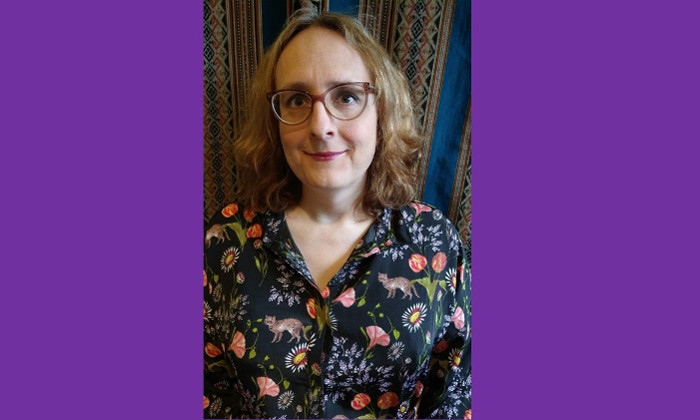
“Never looked back”
Abby, a Senior Analytical Technician and COSHH Adviser in Environment and Earth Sciences Williamson Building, shares: “I struggled with my gender identity for a long time, so I threw myself into my studies as a way of coping with it. While doing my PhD at the Open University in Milton Keynes, I met my partner Patricia. We have been together since. Our relationship is based on love, trust, looking after a wonderful pre-teen, 80s rock and research projects.
“We live outside of the Greater Manchester area with our four cats and two dogs. I started my transition back in 2017 when I realised that I could not suppress my true self anymore and came out to my wife, then to family and friends. While this came as a surprise to all of them, I have had nothing but love and support from them as they knew my essence and only the outer shell changed.
“One of the best things has been the support of my little boy, he has been so accepting since day one, and he is so proud of me. Not a single time he refused me picking him up from school and he has been my knight in shiny armour, explaining to his friends he has two mums. This easiness has been extrapolated to his friends and parents, who have always been wonderful.
“I came out as Abby in my previous work, at the University of Salford, who were highly supportive. Since then, I never looked back. Because of all this love and support I feel very privileged and I try and return this by being involved in several trans* support groups, various committees and workgroups, as I want to try my best to improve the environment for other trans* and LGBT people.”
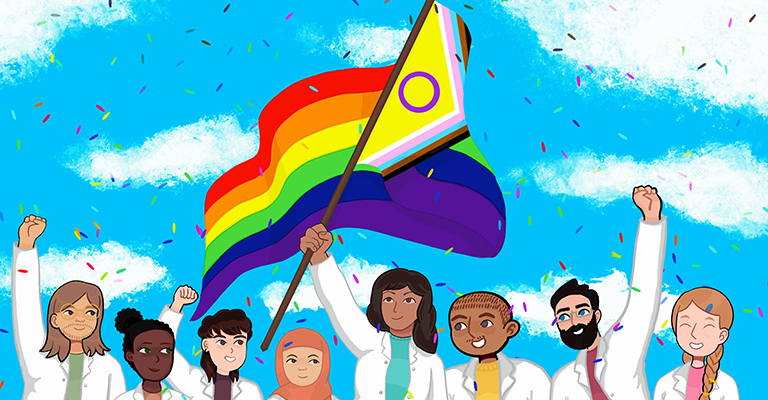
“Normalising discussions about gender”
Davide is a student in the Advanced Biomedical Materials Centre for Doctoral Training, who moved to Manchester from Italy. He recommends changing personal pronouns as a way to promote inclusivity.
“In my personal experience as a cis gay man – cis or cisgender meaning that I identify myself with my sex assigned at birth – I find that the initial first step individuals can take in STEM is including personal pronouns on your social media profiles (LinkedIn and Instagram offer an inbuilt feature), on your email signature, and in your Zoom/Teams/Skype name”, he explains.
“This practice not only allows you to create an inclusive environment for non-binary and trans people, but as an extension it allows other LGBTQ+ people to see your inclusivity. I remember when I started my PhD, seeing my Head of Department and the EDI (Equality, Diversity and Inclusivity) academic liaison include their pronouns in their email signatures, and later on Zoom, made me feel accepted, because it reassured me that I was in a safe space. It made me also excited for future students to see the type of environment they try to foster.
“You may ask why it is important to include pronouns. The only reason to include your pronouns in your social media profile or on your email signature is simply to show that you are taking the first step in normalising discussions about gender in the workplace, or in your personal context.”
Read Davide’s guest post, on The Hub, about his journey so far.
It’s wonderful to be able to share such uplifting and informative stories from our LGBT+ community; a big thank you to Craig, Abby and Davide for telling us theirs.
Chemical Engineering and Analytical ScienceChemistryComputer ScienceEarth and Environmental SciencesElectrical and Electronic EngineeringMaterialsMathematicsMechanical Aerospace and Civil EngineeringPhysics and Astronomy


